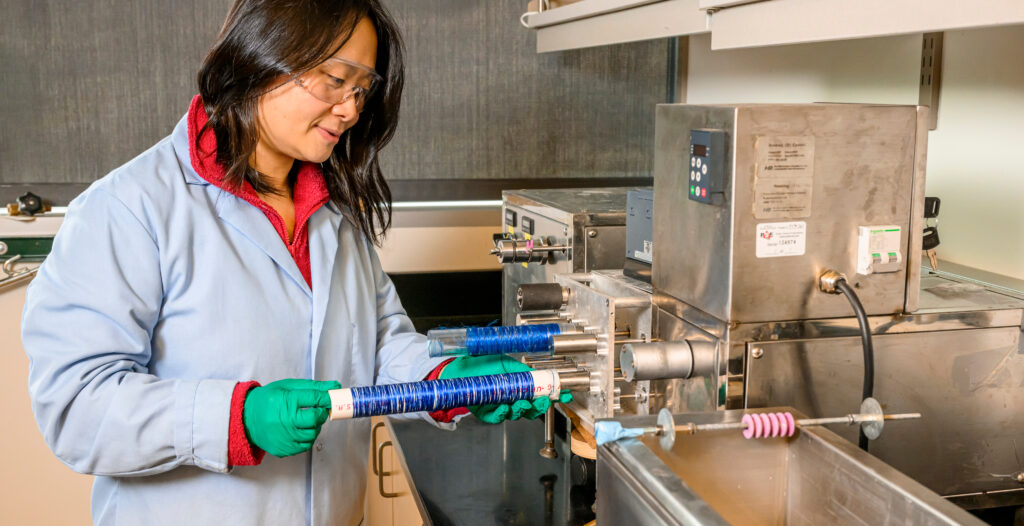Researchers at Washington State College have developed a 3D printing methodology for sensible materials that maintains efficiency after repeated washing and put on. In accordance with a examine revealed in ACS Omega, the crew used direct ink writing expertise to print options of biodegradable polyester with carbon nanotubes onto materials. This method addresses widespread points with sensible textiles, which frequently sacrifice consolation and sturdiness for technological performance.


“The supplies used, or the expertise used, typically produce very inflexible or stiff materials,” stated Hold Liu, affiliate professor within the Division of Attire, Merchandising, Design and Textiles and the examine’s corresponding creator. “If you’re carrying a T-shirt with 3D printed materials, for instance, for sensing functions, you need this shirt to suit snugly in your physique, and be versatile and gentle.”
Testing confirmed the printed materials maintained electrical conductivity and mechanical power after 20 cycles of washing and drying. The supplies additionally withstood 200 cycles of abrasion testing and 500 cycles of tensile testing with out important degradation. The analysis crew used Cyrene, a biodegradable and non-toxic solvent, making the method extra environmentally pleasant than strategies utilizing conventional poisonous solvents.
Good materials signify an rising expertise with potential purposes in healthcare, first responder gear, navy gear, and athletic put on. These textiles might doubtlessly monitor important indicators or present suggestions on motion, just like the capabilities of present wearable gadgets.
The examine was led by doctoral scholar Zihui Zhao as a part of a dissertation, with partial funding from the Nationwide Science Basis. Liu famous that whereas this analysis focuses on the sensing capabilities of sensible materials, creating full purposeful sensible wearables would require further work on energy sources and knowledge transmission applied sciences.
Supply: information.wsu.edu



